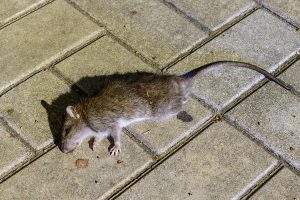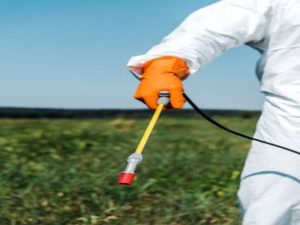Sydney, the largest and oldest city in Australia, has been at the forefront of sustainable practices in many industries. One area where it has made significant progress is in commercial pest control. As businesses become more environmentally conscious and consumers demand green solutions, Sydney has responded by implementing sustainable practices in its pest control methods.
The first step towards sustainability in commercial pest control was a shift towards using non-toxic and eco-friendly products. This move away from traditional chemical pesticides was motivated by concerns over their impact on the environment and human health. The use of natural insecticides derived from plants such as pyrethrum, neem oil, and diatomaceous earth became more widespread. These alternatives proved to be just as effective as synthetic pesticides but without the harmful side effects.
Another sustainable practice adopted by Sydney’s Commercial pest control service industry is integrated pest management (IPM). IPM is a holistic approach that combines multiple strategies to prevent or manage pests while minimizing environmental impact. This approach involves using biological controls such as parasitic wasps or nematodes to target specific pests, rather than relying solely on chemical pesticides. It also includes maintaining good hygiene practices and sealing entry points to prevent pests from entering buildings.
One unique aspect of Sydney’s approach to sustainable commercial pest control is its focus on urban beekeeping. Bees play a crucial role in pollination and are essential for maintaining a healthy ecosystem. However, the use of chemical pesticides can be detrimental to bee populations. To combat this issue, some commercial pest control companies have started offering beekeeping services alongside their regular treatments for other pests like termites or cockroaches.
In addition to these innovative approaches, Sydney’s commercial pest control companies have also implemented various measures to reduce their carbon footprint and promote sustainability within their operations. For example, some companies have switched to hybrid vehicles for transportation purposes while others have implemented recycling programs within their offices.
One company leading by example is “Green Pesticides”. This award-winning commercial pest control company uses only environmentally friendly products and practices IPM to manage pests. It also has a beekeeping division that offers maintenance services to businesses looking to install hives on their premises. In addition, “Green Pesticides” is committed to reducing its carbon footprint by using biodiesel vehicles and offsetting its energy usage with renewable energy sources.
The Sydney City Council has also taken significant steps towards promoting sustainable pest control practices. The council provides training and certification programs for pest controllers on IPM techniques, advocates for the use of non-toxic pesticides, and encourages the installation of bee hotels in public spaces.
In conclusion, Sydney’s commercial pest control industry has made remarkable strides in implementing sustainable practices. Through a combination of innovative approaches, reduced reliance on chemical pesticides, and a commitment to reducing their environmental impact; businesses in this industry are making conscious efforts towards creating a more sustainable future. With increased awareness and education, we can hope that these practices will continue to evolve and be adopted by more businesses globally, benefitting both the environment and our health in the long run.




